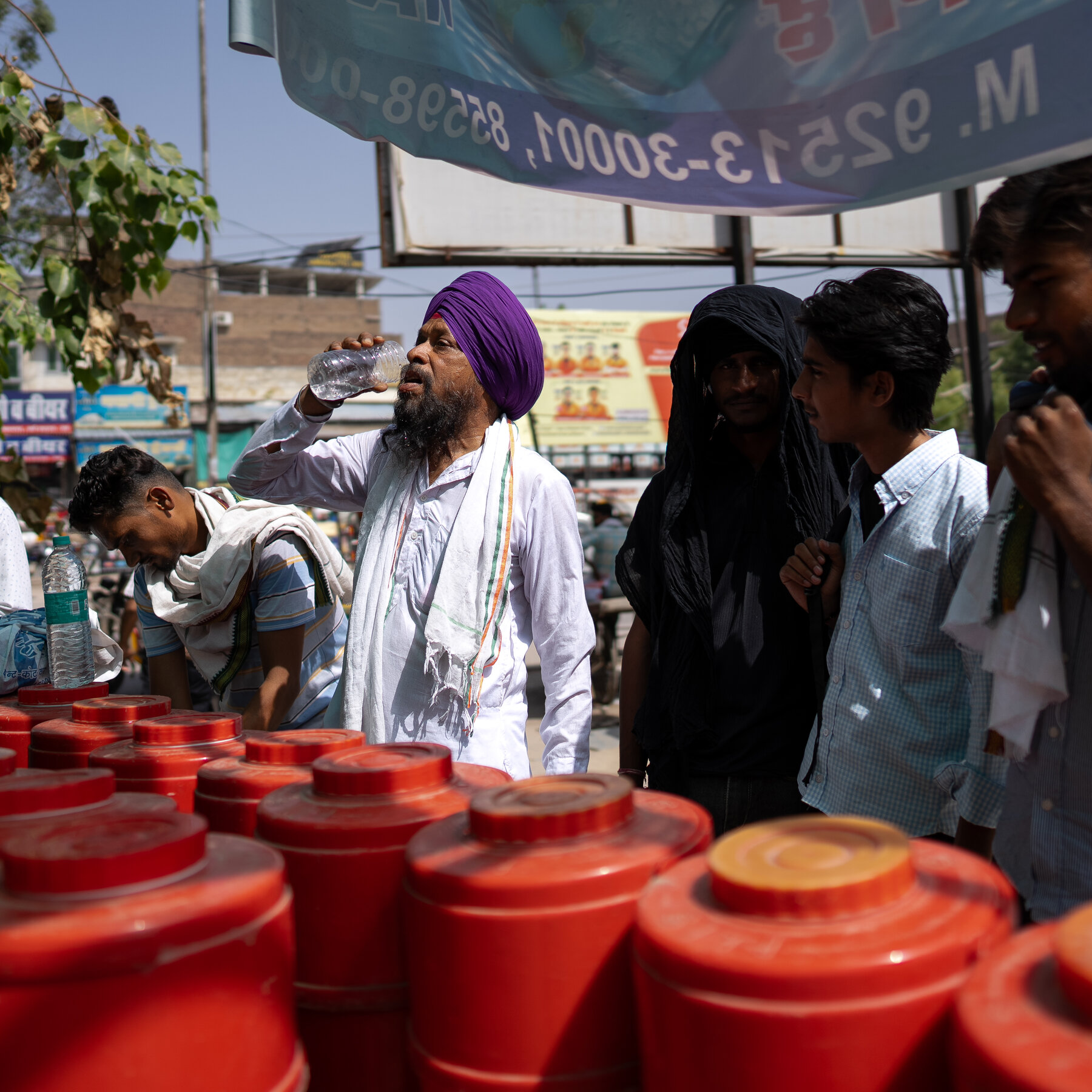Science
India Struggles to Assess and Address Heat-Related Deaths

The full extent of heat-related fatalities in India remains largely unknown, as public health officials and scientists highlight the challenges in accurately assessing this growing concern. As extreme heat events become more frequent, understanding their impact has never been more critical.
Uncertain Statistics and Rising Temperatures
India is experiencing an increase in extreme heat events, with temperatures soaring in several regions. According to the Indian Meteorological Department (IMD), the country recorded an average temperature rise of approximately 1.5 degrees Celsius since the early 1900s. Despite this alarming trend, the exact number of deaths attributed to heat remains elusive.
Public health experts stress that existing data is insufficient to draw definitive conclusions. For instance, the National Disaster Management Authority (NDMA) has reported an increase in mortality rates during heatwaves, but the numbers are often generalized and lack specificity. Dr. Randeep Guleria, Director of the All India Institute of Medical Sciences, emphasizes the need for comprehensive research to establish clearer data on heat-related deaths.
Challenges in Data Collection
The difficulties in quantifying heat-related deaths stem from various factors, including inadequate reporting mechanisms and the overlap of heat symptoms with other health issues. Many individuals suffering from heat exhaustion or heat stroke may not receive timely medical attention, resulting in underreporting.
Furthermore, public health systems in India often lack the resources to conduct detailed epidemiological studies on the effects of heat. Data collection methods vary across states, leading to inconsistencies in reported figures. The World Health Organization (WHO) has called for improved surveillance and data collection to better understand the impact of climate change on health.
Experts agree that without reliable data, it is nearly impossible to implement effective interventions. The absence of a unified national strategy to address heat-related health risks exacerbates the situation.
The Urgency for Action
As heatwaves become increasingly common, the urgency for action is paramount. Public health officials advocate for enhanced awareness campaigns to educate communities about the risks associated with extreme heat. Simple measures, such as staying hydrated and avoiding outdoor activities during peak temperatures, can significantly reduce the health risks for vulnerable populations.
In addition, experts recommend that the government invest in infrastructure improvements to provide adequate shelter and resources for those affected by heat. Without these measures, the health impacts of rising temperatures could escalate dramatically.
The way forward requires collaboration between public health sectors, meteorological agencies, and local governments. As India continues to grapple with the effects of climate change, the need for a robust response to heat-related health challenges has never been clearer.
In conclusion, while the precise number of heat-related deaths in India remains uncertain, the growing recognition of this public health issue underscores the need for decisive action. Addressing the problem effectively will require a commitment to data collection, community education, and systemic change.
-

 Technology5 months ago
Technology5 months agoDiscover the Top 10 Calorie Counting Apps of 2025
-

 Health3 months ago
Health3 months agoBella Hadid Shares Health Update After Treatment for Lyme Disease
-

 Health3 months ago
Health3 months agoErin Bates Shares Recovery Update Following Sepsis Complications
-

 Technology4 months ago
Technology4 months agoDiscover How to Reverse Image Search Using ChatGPT Effortlessly
-

 Technology1 month ago
Technology1 month agoDiscover 2025’s Top GPUs for Exceptional 4K Gaming Performance
-

 Technology3 months ago
Technology3 months agoElectric Moto Influencer Surronster Arrested in Tijuana
-

 Technology6 days ago
Technology6 days agoOpenAI to Implement Age Verification for ChatGPT by December 2025
-

 Technology5 months ago
Technology5 months agoMeta Initiates $60B AI Data Center Expansion, Starting in Ohio
-

 Technology5 months ago
Technology5 months agoRecovering a Suspended TikTok Account: A Step-by-Step Guide
-

 Health5 months ago
Health5 months agoTested: Rab Firewall Mountain Jacket Survives Harsh Conditions
-

 Health3 months ago
Health3 months agoAnalysts Project Stronger Growth for Apple’s iPhone 17 Lineup
-

 Lifestyle5 months ago
Lifestyle5 months agoBelton Family Reunites After Daughter Survives Hill Country Floods





















